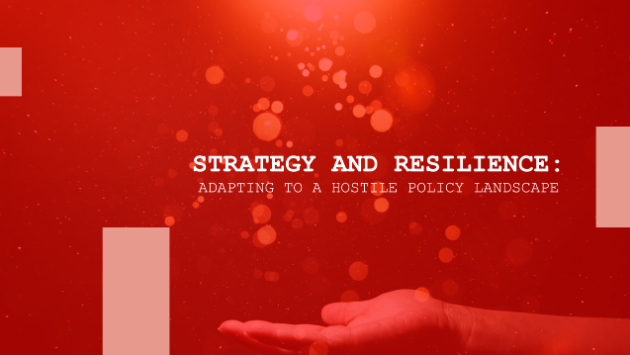Beyond Language
- Elizabeth Tasick
- Oct 13
- 3 min read
First published on January 29, 2025 on LinkedIn

It is a well-known strategy when designing a proposal or communicating with a donor to use the same language they do. For example, if a donor emphasizes "social equity," aligning with that terminology rather than using "economic justice"—even if they mean the same thing—makes proposals more persuasive. Mission-driven organizations are well-positioned to do this, as they already have a solid grasp of their goals and a structured theory of change. Once they identify a donor aligned with their mission, it becomes a matter of adapting their terminology accordingly. In this context, establishing Lexicons—a structured way to translate language across different donors or audiences—can be an effective tool.
However, the foreign assistance landscape has fundamentally shifted.
On January 20, 2025, the White House issued two Executive Orders: Ending Radical and Wasteful Government DEI Programs and Preferencing and Reevaluating and Realigning United States Foreign Aid. Within days, the Office of Management and Budget (OMB), USAID, and the State Department issued a series of memos, swiftly followed by Stop Work Orders and termination notices to grantees and contractors. In addition, nearly 400 USAID contractors were laid off, plunging the foreign aid sector into turmoil.
The urgency of this moment is undeniable. Organizations and individuals are scrambling to adapt, seeking ways to align their programs with this new reality. Initially, my instinct—like many others—was to create a Lexicon to translate existing language into the Administration’s preferred terminology to help organizations in this fast moving environment. This approach made sense based on decades of experience navigating shifting political priorities. However, this assumption—that the Administration seeks to return to some form of normalcy or even a status quo—now appears dangerously flawed.
A New Playbook for Dismantling the Sector
The Administration’s actions related to foreign assistance appear to be closely following the Mandate for Leadership: The Conservative Promise, a policy handbook published by the Heritage Foundation in 2023. This document provided detailed recommendations for an incoming conservative president, many of which are being carried out with striking precision. The directive to immediately freeze on all foreign assistance disbursements, domestic and international contracts, payments, and hiring decisions (pg 174) was strictly followed. Given this, we should take seriously the broader agenda outlined in the conservative handbook to dismantle the administrative state, and address the government’s approach which will not be by trimming and reshaping the leaves, but by ripping out the trees—root and branch (pg. 12).
Setting aside the flaws in analysis and internal inconsistencies within the conservative handbook, the policies being adopted by the new Administration are not mere budgetary adjustments or efficiency measures—they are deliberate, strategic actions aimed at broad systemic transformation.
Why a Lexicon Might Accelerate the Crisis
If this Administration were merely looking to reshape programs under different priorities, adapting language might be a viable strategy. However, the explicit intent is eradication, not adaptation.
On January 22, a White House directive ordered federal employees to report any efforts to "disguise" diversity initiatives within their agencies or face "adverse consequences." This approach—a classic Red Scare tactic that has been deployed under different names in various places to root out and silence perceived political opponents—leverages fear and economic precarity to force compliance and self-policing. In this environment, the creation of Lexicons could serve as a roadmap for targeting individuals and departments for dismantling. What we once used as a tool for donor alignment could now become evidence of ideological defiance—fuel for investigations, audits, and purges.
Navigating Disruption with Strategy and Resilience
We cannot assume a return to normalcy. Instead, organizations must prepare for prolonged struggle and the very real possibility that existing governance structures will be significantly reshaped or dismantled. This demands a shift from linguistic adaptation to structural resilience.
Organizations must critically assess whether their current program theories can withstand this new reality, whether they need to develop models that balance short-term survival with long-term resistance, or whether an entirely new approach is necessary. While some may attempt to work within the Administration’s new framework, others will find it untenable. Each organization must determine how to engage without legitimizing the destruction of their sector. Unfortunately, many of us int eh foreign assistance sector have friends with considerable experience in this.
Our response to this deliberate dismantling of government institutions—including foreign assistance—must be equally strategic. We must fortify our structures, protect our people, and build alternative pathways forward.




Comments